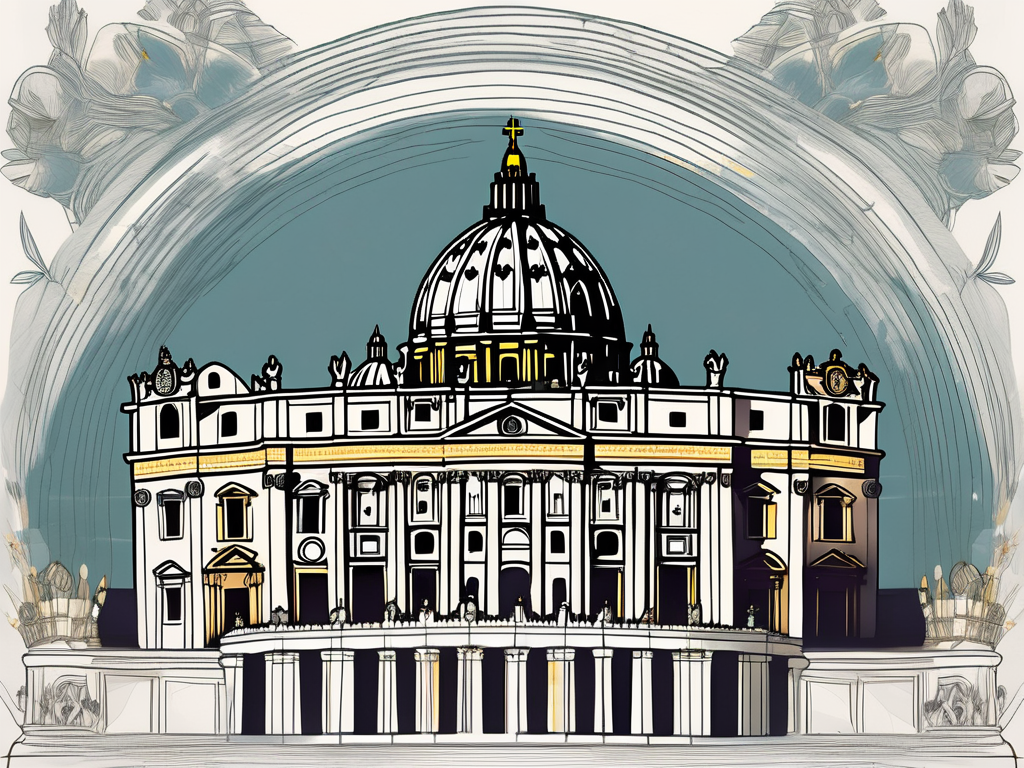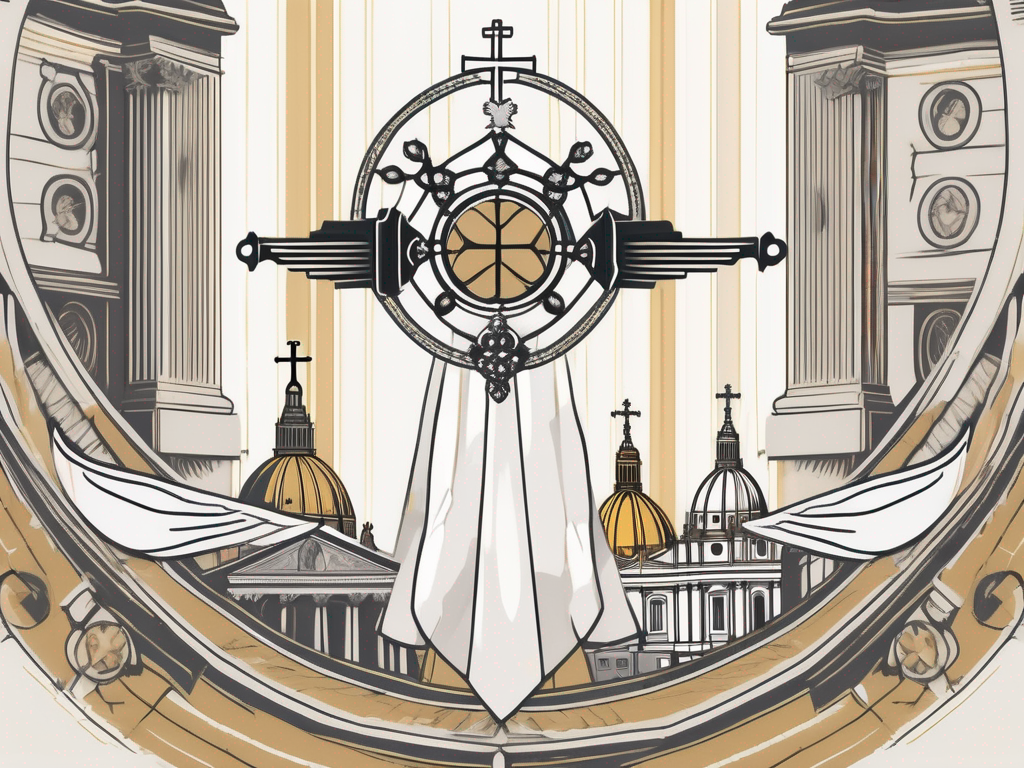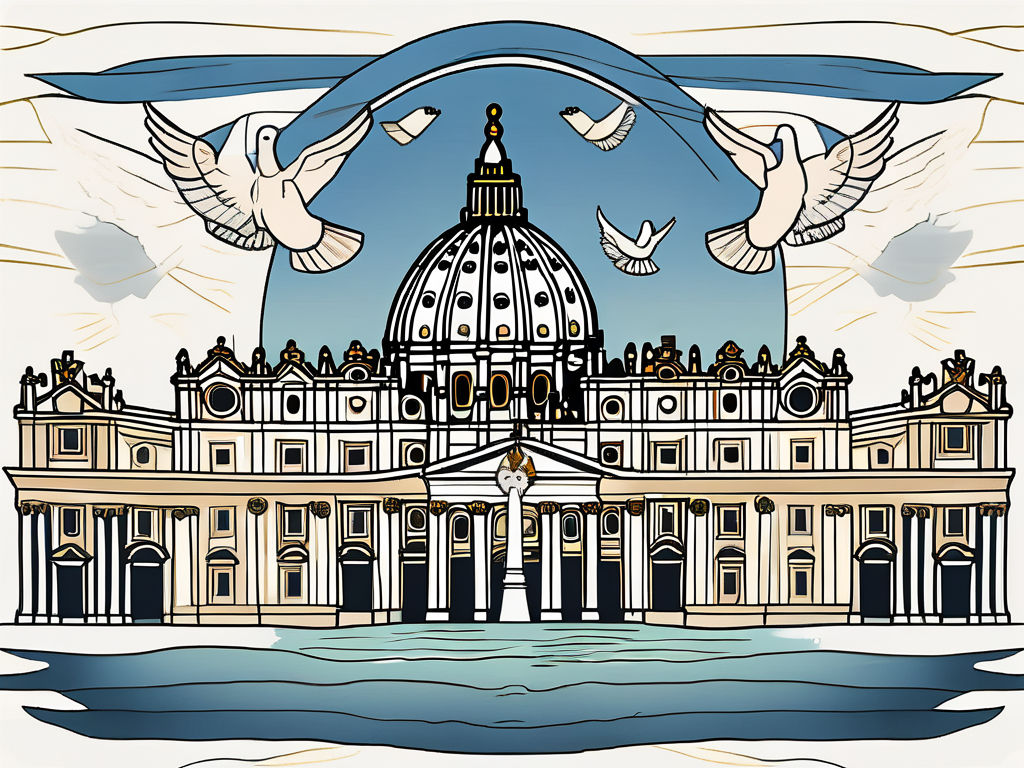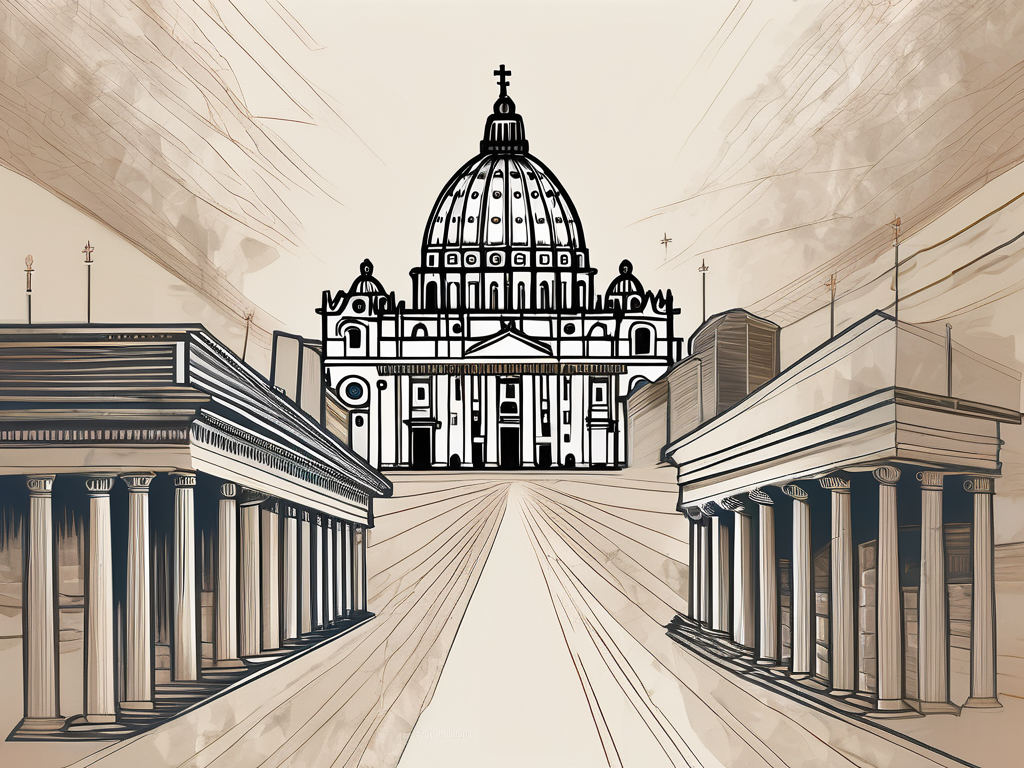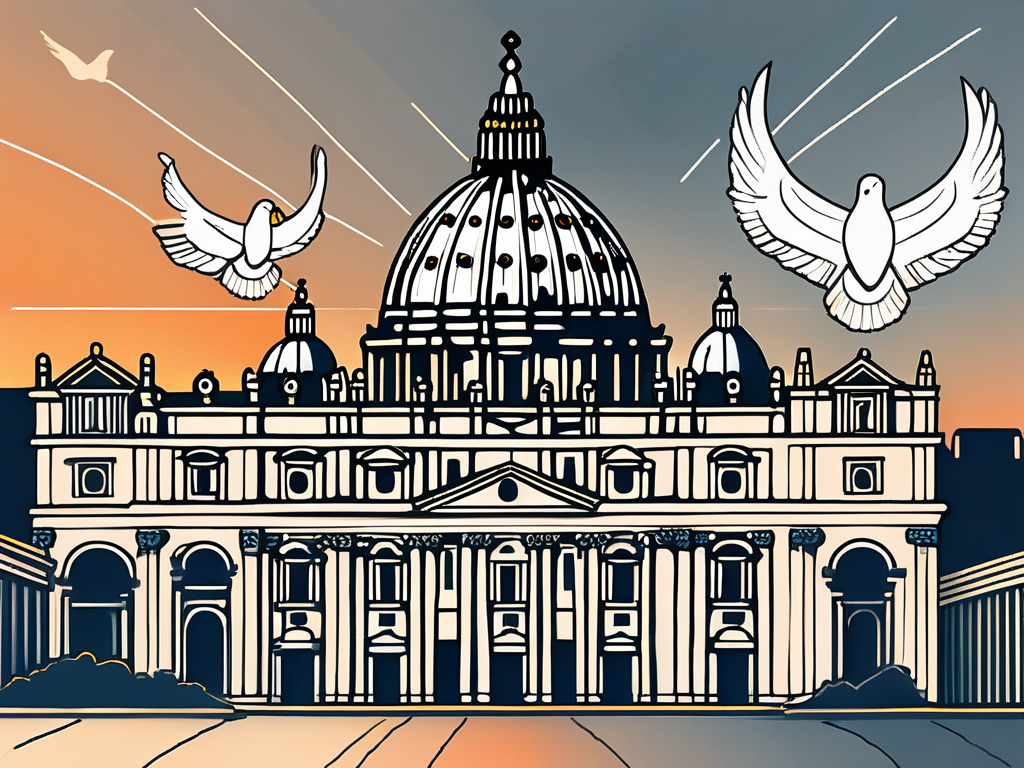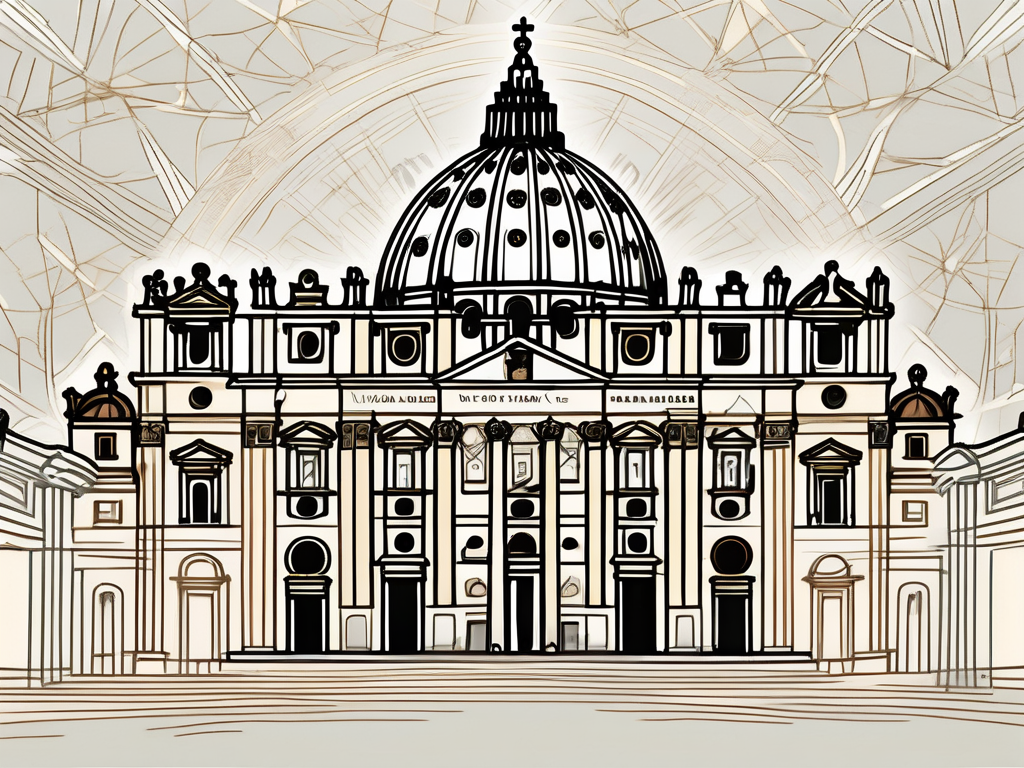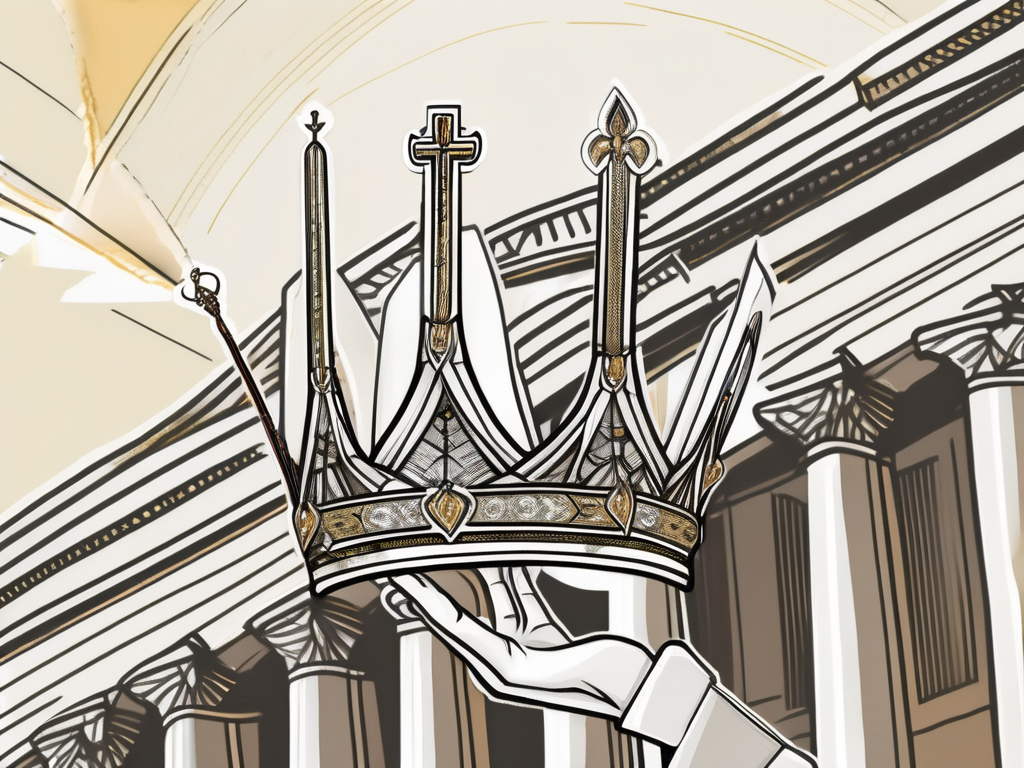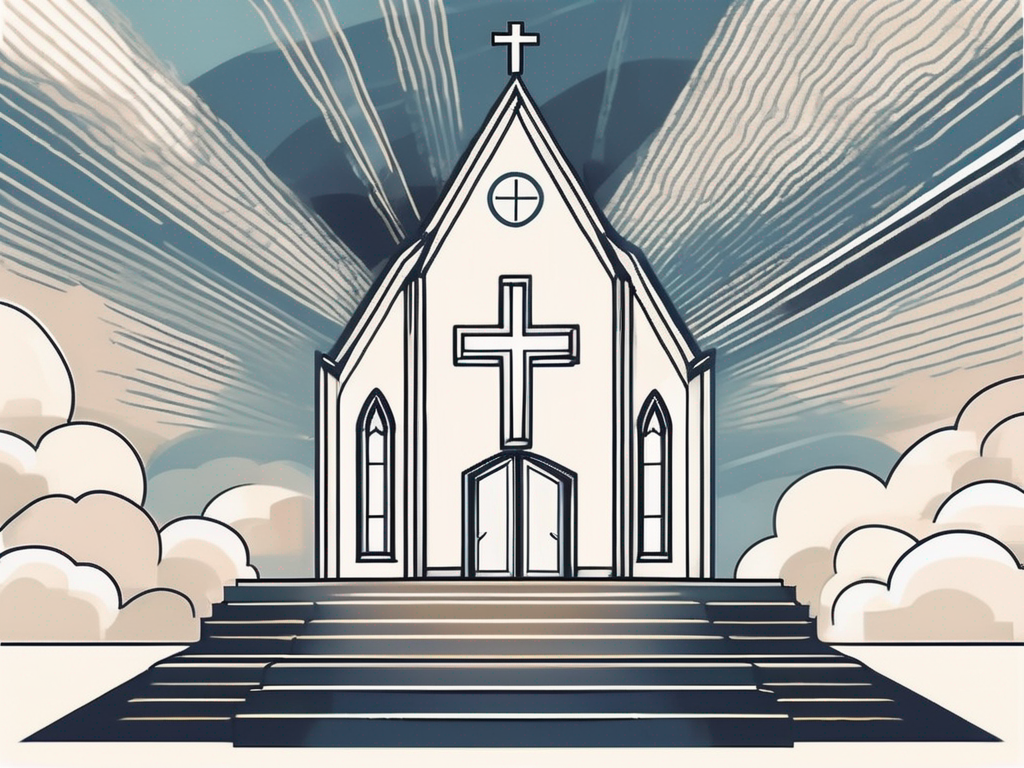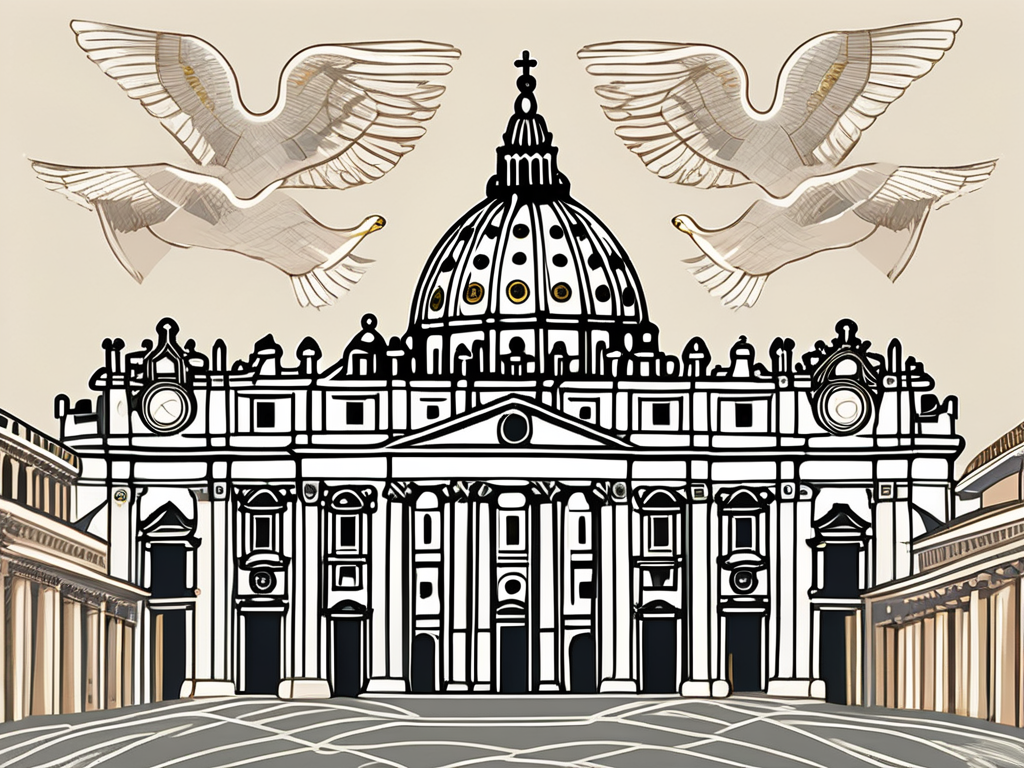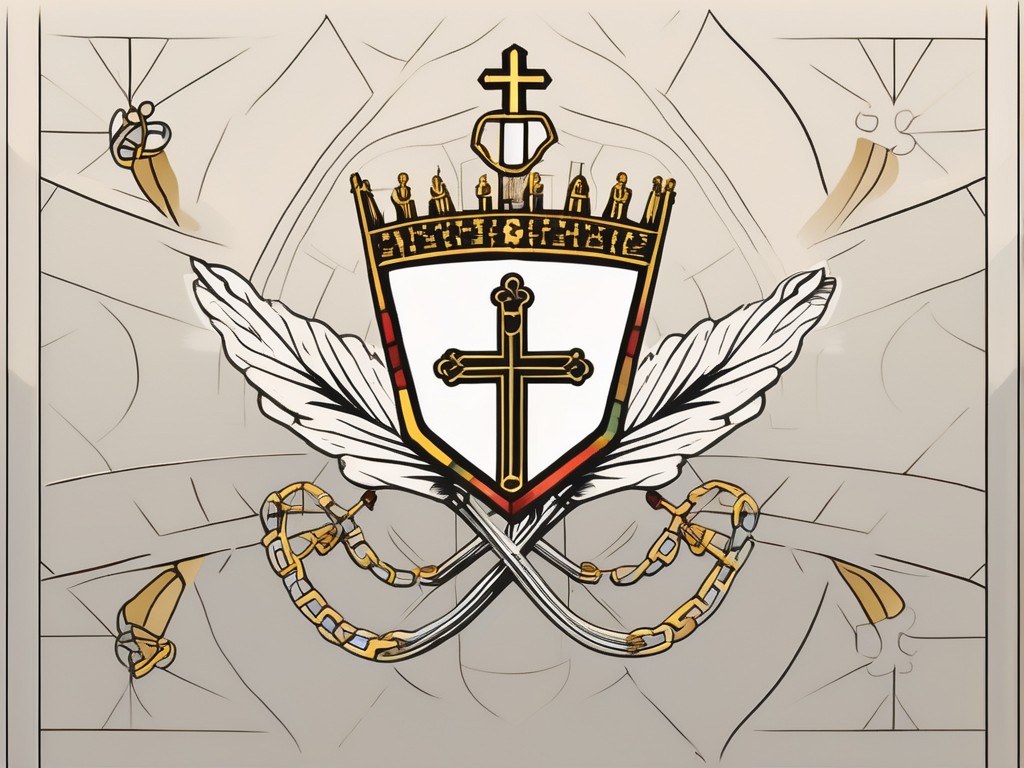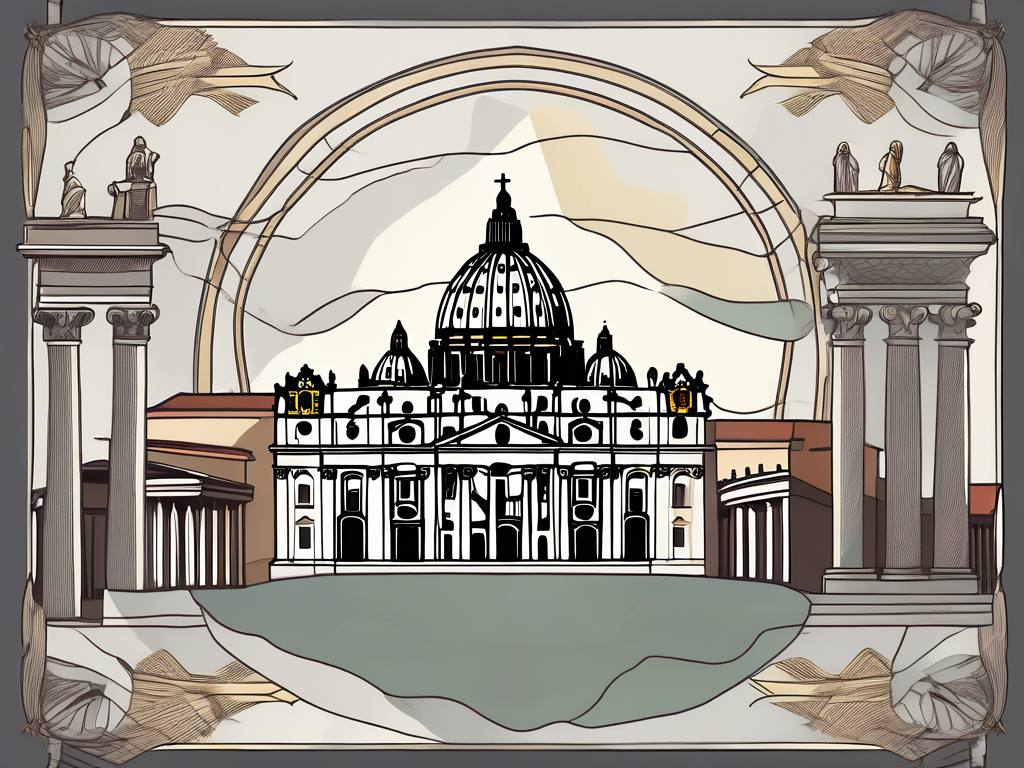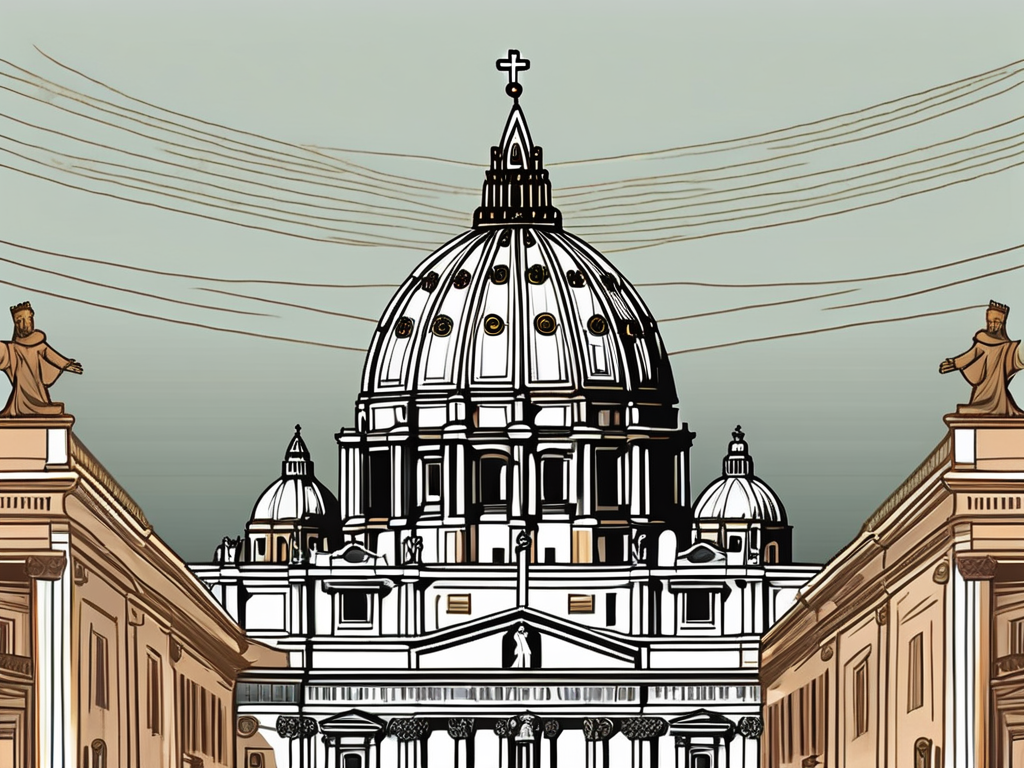Pope Pius VI, born Giovanni Angelo Braschi, lived an extraordinary life of dedication and service to the Catholic Church. From his humble beginnings to his ascension as Pope and his enduring legacy, this article explores the remarkable journey of Pope Pius VI.
Early Life and Education of Giovanni Angelo Braschi
Giovanni Angelo Braschi was born into a modest family on December 27, 1717, in Cesena, Italy. His parents instilled in him strong values of faith and education, which would shape his future path.
Coming from a family background rooted in the Catholic tradition, Giovanni Angelo developed a deep appreciation for the teachings of the Church from an early age. As he grew older, his thirst for knowledge led him to pursue a rigorous education.
After completing his early studies in Cesena, Giovanni Angelo continued his education at the Dominican College of Ravenna, where he honed his intellectual abilities and immersed himself in theological studies.
Birth and Family Background
The Braschi family was known for their devout Catholicism and their commitment to serving the Church. They provided Giovanni Angelo with a nurturing and religious upbringing, shaping his character and values.
Giovanni Angelo’s parents, Antonio and Maria Braschi, were hardworking individuals who instilled in their children the importance of faith, humility, and compassion. They taught him the value of education and encouraged him to pursue his dreams.
Growing up in Cesena, a small town in Italy, Giovanni Angelo experienced a close-knit community where neighbors looked out for one another. The town’s strong Catholic identity influenced his upbringing, as he witnessed the devotion and piety of the townspeople.
Education and Early Ecclesiastical Career
Giovanni Angelo excelled academically and displayed a keen interest in ecclesiastical matters. His dedication and scholarly achievements caught the attention of the Church hierarchy, and he was ordained as a priest in 1740.
During his time at the Dominican College of Ravenna, Giovanni Angelo delved deep into the study of theology, philosophy, and canon law. His professors recognized his exceptional intellect and encouraged him to pursue further studies.
After completing his education, Giovanni Angelo embarked on a journey of service to the Church. He held various clerical positions, where he demonstrated his unwavering faith and commitment to the Catholic Church.
His work as a papal diplomat in various European cities further enhanced his understanding of international affairs and diplomacy, skills that would prove invaluable in his future role as Pope.
Throughout his early ecclesiastical career, Giovanni Angelo Braschi gained a reputation for his humility, compassion, and intellectual prowess. His dedication to the Church and his unwavering commitment to his faith set him apart as a rising star within the Catholic hierarchy.
As he continued to serve the Church, Giovanni Angelo’s experiences and interactions with people from different walks of life broadened his perspective and deepened his understanding of the challenges faced by the faithful.
Little did Giovanni Angelo know that his journey would lead him to the highest office in the Catholic Church, where he would become known as Pope Pius VI, leaving a lasting impact on the Church and the world.
Ascension to Papacy as Pope Pius VI
In February 1775, Giovanni Angelo Braschi was elected as the 250th Pope of the Catholic Church and took on the name Pope Pius VI.
The election of Pope Pius VI was met with joy and excitement. The news spread like wildfire, reaching the far corners of the Catholic world. People from all walks of life eagerly awaited the new Pope’s coronation, hoping for a leader who would guide them through the challenges of the time.
And so, on a bright and sunny day, the papal coronation took place. The grand ceremony was held in St. Peter’s Basilica, the heart of the Catholic Church. Dignitaries from around the world gathered to witness this historic event, their eyes filled with anticipation and hope.
The air was filled with a sense of reverence and awe as Pope Pius VI, dressed in his resplendent papal robes, made his way to the altar. The sound of the choir echoed through the majestic cathedral, their voices blending harmoniously with the prayers of the faithful.
As the Pope received the papal tiara, a symbol of his authority, a wave of applause and cheers erupted from the crowd. It was a moment of triumph and celebration, a new chapter in the history of the Catholic Church.
Election and Papal Coronation
The election of Pope Pius VI was not an easy one. The conclave, composed of cardinals from different parts of the world, engaged in intense deliberations and debates. Each cardinal had their own vision for the future of the Church, their own candidate to support.
But in the end, it was Giovanni Angelo Braschi who emerged as the chosen one. His reputation as a learned and pious man, coupled with his diplomatic skills, made him a suitable candidate for the papacy. The cardinals saw in him the qualities needed to lead the Church in troubled times.
And so, with great anticipation, the cardinals gathered in the Sistine Chapel to cast their votes. The process was shrouded in secrecy, with each cardinal writing the name of their chosen candidate on a piece of paper and placing it in a chalice.
After the votes were counted, the cardinal deacon stepped forward to announce the name of the new Pope. “Habemus Papam!” he proclaimed, and the crowd erupted in applause and cheers.
From that moment on, Giovanni Angelo Braschi became Pope Pius VI, the spiritual leader of millions of Catholics around the world.
Challenges Faced in the Early Papacy
Pope Pius VI’s ascension to the papacy was not without its challenges. The Church he inherited was grappling with internal strife and external threats.
The rise of secularism and the Age of Enlightenment had cast a shadow over the Catholic faith. People were questioning long-held beliefs and seeking answers beyond the confines of religion.
But Pope Pius VI was not one to shy away from challenges. He saw them as opportunities for growth and renewal. With unwavering faith and determination, he set out to restore the Church’s authority and promote its teachings in an ever-changing world.
He recognized the need for religious and political reforms that would address the pressing needs of the Church and its followers. Pope Pius VI became a champion of unity, reaching out to leaders of different nations and faiths, fostering dialogue and understanding.
His efforts were not in vain. Under his leadership, the Catholic Church experienced a period of spiritual renewal. The faithful found solace in his teachings, and the Church regained its influence and relevance in society.
Pope Pius VI’s papacy was marked by his unwavering commitment to the Church and its followers. He faced challenges head-on, guided by his deep faith and love for God. His legacy continues to inspire and guide the Catholic Church to this day.
Major Contributions and Reforms of Pope Pius VI
During his papacy, Pope Pius VI implemented numerous reforms and introduced significant contributions that had a lasting impact on the Catholic Church and beyond.
Religious and Political Reforms
Pope Pius VI recognized the importance of unity within the Church and sought to strengthen its hierarchical structure. He implemented reforms that improved the administration of the Church and nurtured the spiritual growth of its members.
Furthermore, he promoted religious tolerance and dialogue, seeking common ground with other denominations and fostering a spirit of understanding and cooperation.
Cultural and Artistic Contributions
Pope Pius VI was a passionate patron of the arts. He recognized the power of art in conveying religious narratives and promoting spiritual contemplation.
Under his patronage, numerous masterpieces were commissioned, adding to the grandeur of the Vatican and enriching the cultural legacy of the Catholic Church.
His love for music was also notable, and he actively supported the composition and performance of sacred music, leaving a lasting impact on the liturgical traditions of the Church.
Pope Pius VI and the French Revolution
The French Revolution presented one of the greatest challenges during Pope Pius VI’s papacy. The revolutionary ideals threatened the authority and influence of the Catholic Church.
Initial Response and Diplomatic Efforts
Upon the outbreak of the French Revolution, Pope Pius VI swiftly condemned its violent nature and expressed concerns about the erosion of religious values and institutions.
He engaged in diplomatic efforts to protect the interests of the Church, forging ties with other European leaders who shared his concerns and strongly condemned the revolutionary movement.
Condemnation and Exile
Pope Pius VI’s strong opposition to the revolutionary government resulted in retaliation from the French authorities. In 1798, French forces invaded Rome and arrested the Pope, leading to his subsequent exile.
Despite the hardships he faced during his captivity, Pope Pius VI continued to serve as a spiritual leader, offering solace and guidance to the faithful during one of the darkest periods in the history of the Catholic Church.
Death and Legacy of Pope Pius VI
Pope Pius VI’s final years were marked by physical and emotional challenges. He endured the harsh conditions of his exile until his death on August 29, 1799.
Final Years and Death
Despite the hardships he faced, Pope Pius VI remained steadfast in his faith and unwavering commitment to the Catholic Church until his last breath. His strength and resilience served as an inspiration to countless followers.
Beatification and Legacy in the Catholic Church
In recognition of his profound impact on the Catholic Church and his enduring legacy, Pope Pius VI was beatified by Pope Pius XII on May 27, 1951.
His teachings, reforms, and contributions to the Catholic Church continue to guide and inspire its faithful, leaving an indelible mark on the history of the Church and the world.
In conclusion, Pope Pius VI’s life and legacy serve as a testament of unwavering faith, determination, and commitment to the Catholic Church. From his humble beginnings to his papal reign and enduring contributions, he left an indelible mark on the history of the Church. Pope Pius VI’s reforms, diplomatic efforts, and cultural contributions continue to inspire the faithful and ensure his lasting presence in the annals of Catholic history.
